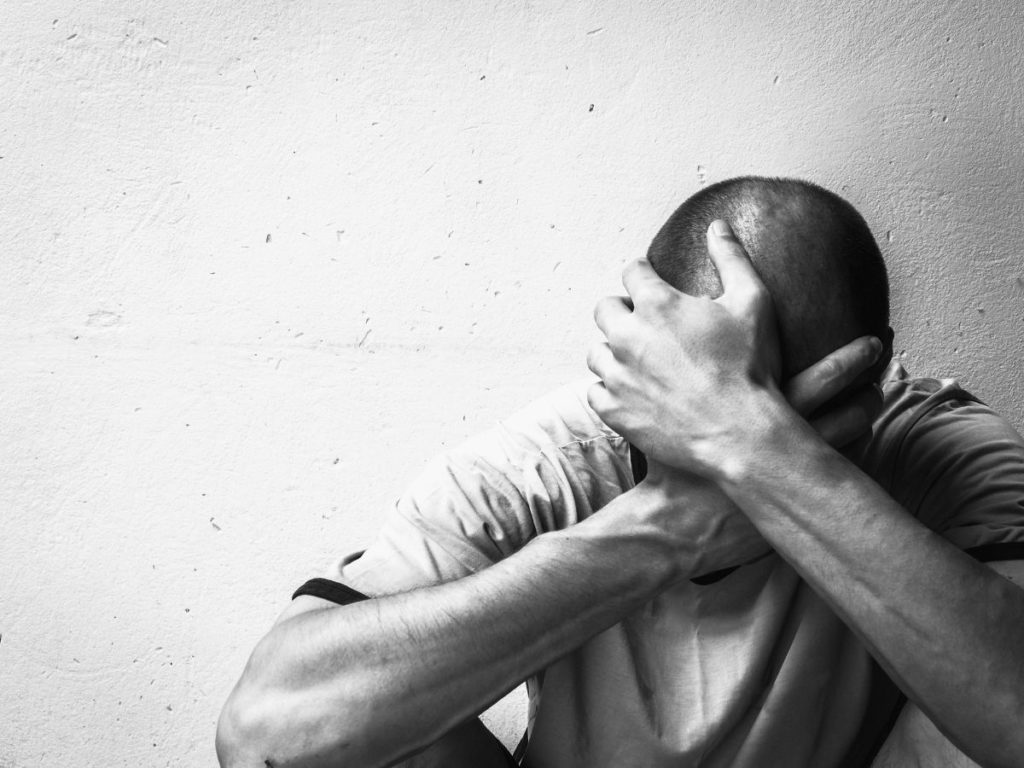What is Benzo Addiction?
Benzodiazepines are prescription drugs that cause long-lasting changes in the brain’s ‘reward system’ when taken for long periods. When a user takes benzodiazepines, they alter the levels of reward-producing natural chemicals, such as dopamine and norepinephrine. Over time, the brain physically adapts so that it is unable to produce these chemicals on its own and becomes reliant on the drugs to feel normal. These effects on the brain can easily lead a person to benzo addiction. There are well-recognized harms from the long-term use of benzodiazepines. These include dependency, cognitive decline, and falls.
This depends on the drug taken, but it is very possible to become addicted to the first use. Benzos are drugs that act on neurotransmitters in the brain causing feelings of relaxation. First marketed in the 1950s, Benzos were used as a treatment for anxiety and insomnia.
They work by binding to GABA receptors in the brain, which inhibits signals to the central nervous system. How long to get addicted to Benzoz, might you wonder? Benzos have a high potential for abuse and addiction because they cause euphoria or calmness when taken at higher-than-prescribed doses, especially when used recreationally to “chill out.” Benzo addiction is using it daily for months to achieve these feelings of relaxation. Benzos should not be taken without a prescription due to the risk of physical dependence and addiction.

Like any drug, the more you take, the stronger the sensations are. However, more than other drugs, benzodiazepines can be the basis of low-level, functioning addictions, where the user treats the drug as a pharmaceutical medication, keeping the levels constantly ‘topped up.
Anyone who has struggled to stop using benzodiazepines will be aware of the serious effects they have on the mind and body. The drugs are designed to affect almost every part of the brain – that is why they are so effective as anti-anxiety medication. But it is also why they can be so difficult to quit.
Types Of Benzodiazepines
There are many different benzodiazepines on the market. Doctors may prescribe one over the other for several reasons. Perhaps their patients have seen more progress for one over the other, or a specific benzo formulation is known to better meet a client’s needs. Furthermore, here is a list of the different types of benzos with their generic and brand names.
- Alprazolam (Xanax, Xanax XR)
- Clobazam (Onfi)
- Clonazepam (Klonopin)
- Clorazepate (Tranxene)
- Chlordiazepoxide (Librium)
- Diazepam (Valium, Diastat Acudial, Diastat)
- Estazolam (Prosom – discontinued brand in the US)
- Lorazepam (Ativan)
- Oxazepam (Serax – discontinued brand in the US)
- Temazepam (Restoril)
- Triazolam (Halcion)
Benzodiazepines alter the activity of the neurons that trigger stress and anxiety reactions. The Food and Drug Administration (FDA) has approved them for the treatment of:
- Insomnia
- Generalized anxiety disorder
- Social anxiety disorder
- Seizure disorders, such as epilepsy
- Panic disorder
The type of benzodiazepine will determine the potential uses. Doctors may also prescribe these drugs off-label for various other conditions and issues, including:
- Other sleep disorders
- Tic disorders
- Bipolar disorder
- To manage alcohol withdrawal
They may also use them in preparation for some medical procedures.
What Causes Benzo Addiction?
Like other drug addiction effects, benzodiazepines cause a dopamine discharge. Dopamine is a chemical contributing to how we feel pleasure. Over time, these drugs alter the way the brain releases dopamine. This affects the way people feel euphoria or happiness from all activities. As a result, people addicted to benzodiazepines can sometimes feel happy unless they take large doses of the drugs.
Addiction also alters the motivation system in the brain. The brain correlates the substances with happiness and causes cravings that drive the person to take the drugs, and withdrawal is another part of benzo addiction. People who attempt to discontinue the drugs on their own are seldom able to make it through withdrawal. Instead, the symptoms are usually so painful that people return to the benzos for relief.

Benzos can also be addictive because they momentarily alleviate specific mental health issues. For example, some people self-medicate with benzos to mitigate anxiety or sleep difficulties. The drugs can temporarily manage these illnesses, but long-term use can make people think they have to have the drugs to feel less troubled.
Benzodiazepine Side Effects
- Drowsiness
- Confusion
- Dizziness
- Trembling
- Impaired Coordination
- Vision Problems
- Grogginess
- Feelings of Depression
- Headache
Benzo Addiction Symptoms
Although benzodiazepines have a calming effect, they are highly addictive, and a person who abuses them faces a host of symptoms. Some of the physical, psychological, and behavioral symptoms of benzodiazepine abuse include:
- Weakness
- Blurred vision
- Drowsiness
- Poor judgment or thinking
- Doctor shopping
- Asking friends, family, colleagues, and/or classmates for their benzodiazepine pills
- Wanting to cut back on the volume of abuse but not being able to do so
- Mood changes
- Risk-taking behaviors, such as driving after abusing benzodiazepines
- Combining benzodiazepines with alcohol or other drugs
If a person chronically abuses benzodiazepines, the following symptoms may emerge:
- Anorexia
- Insomnia
- Anxiety
- Tremors
- Headaches
- Insomnia
- Memory problems
Benzo Addiction Long Term Side Effects
- Possible Dementia
- Physical Dependence
- Overdose
Due to the natural process of building a tolerance, over time, a person will require a higher volume of benzodiazepines to reach the familiar high. When the abuse stops or the familiar dose is significantly cut down, withdrawal symptoms will emerge. Benzodiazepine withdrawal can be particularly dangerous and even life-threatening. Undergoing medical detox under the direct care of a doctor is generally advised.
Benzo Addiction Overdose
The most significant risk of using benzodiazepines and a reason to get into a benzo addiction treatment program is likely overdosing. With a capacity to develop a tolerance, the longer someone takes benzodiazepines, the greater dosage they will need to take to reach the desired effect. Hence, the greater the risk of overdosing. In addition, sedative benzos cause breathing to slow. In turn, less oxygen is directed through the lungs to the brain and the rest of the body. Finally, once you take a larger dose, breathing delays to the point of being fatal.
A benzodiazepine Overdose Can Lead To:
- Extreme sedation or drowsiness
- A very low breathing rate
- Confusion and difficulty thinking
- Slurred speech
- Loss of muscle control
- Coma
It can be fatal if a person:
- Uses the drugs with alcohol or opioids
- Is older and takes too much of the drug
- Is taking other drugs, and the effects build up in their body
Anyone who shows signs of an overdose or an adverse reaction after taking benzodiazepines will need emergency medical help.
Benzo Addiction Withdrawal Symptoms
Because the benzodiazepine withdrawal process can prove deadly, it’s important for anyone who’s potentially dependent or addicted to consult medical professionals or visit a medical detox facility before they begin to experience withdrawal.
Medical professionals can prescribe medications to manage a withdrawal, oversee the withdrawal and intervene if anything goes awry. They can also provide a safe environment for withdrawal-free from the temptation of mind-altering substances that might complicate or delay the process of quitting.
Ironically, the withdrawal symptoms can bring about the same side effects that drove someone to medicate in the first place. This is because the body and mind have adapted to the presence of the drug, and the withdrawal symptoms are the body’s adjustment process to the absence of those chemicals. The body and mind have to reacclimate to their new realities, where the brain doesn’t naturally produce as many chemicals as the benzodiazepine produced.

The most commonly reported withdrawal symptoms for benzodiazepines are:
- Body aches
- Muscle spasms
- Hyperventilation
- Sweating
- Weight loss
- Anxiety attacks
- Nausea
- Vomiting
- Insomnia
- Panic attacks
- Depression
- Hallucinations
- Trouble concentrating
Benzodiazepine Detox Withdrawal Timeline
Much like detoxing from other prescription drugs, benzo withdrawal timelines can differ from case to case. For someone using short-acting benzos, withdrawal symptoms may begin to present themselves in as little as 6 to 8 hours. However, if a longer-acting benzodiazepine was used, it could be 24 to 48 hours before symptoms are observed. Withdrawal symptoms typically last about four days. And rebound symptoms may last about 2-3 days from when they begin.
Signs of Benzo Addiction
- Taking another person’s pills for his or her own use
- “Doctor shopping,” or visiting multiple doctors to obtain multiple prescriptions
- Forging prescriptions
- Stealing or borrowing a friend or loved one’s prescription
- Purchasing benzodiazepines illegally, such as through a street dealer
- Taking more benzodiazepines and/or over a longer period than first intended
- Spending significant time getting, using, and recovery from benzodiazepines
- Experiencing cravings or withdrawal symptoms
- Needing more of the benzo to achieve the same effect
- Exhibiting impaired performance at home, work, or school
Someone suffering from a Benzo addiction will build a tolerance to the drug, requiring more of it to reach the previous effects. He or she might begin shirking people and activities they used to enjoy to get and use Benzos. These are some of the clinically recognized signs of benzo addiction.
Before starting treatment with benzodiazepines, a person must tell their doctor about every other medication that they are using. Some drugs may intensify the effects of benzodiazepines, while others may make them less effective. It is essential not to use benzodiazepines with opioids or alcohol, as this can lead to life-threatening effects.
Benzo Addiction Treatment At We Level Up WA
Addiction is classed as any pattern of behavior that causes negative consequences for the individual. So if the use of benzodiazepines has started to affect the everyday life of a person negatively, it is likely that they have a benzo addiction. If this is the case, it is imperative to get treatment to regain control of your life.
Treatment may include a program of detoxification and rehabilitation. The person may or may not be prescribed a substitute drug to help with the withdrawal from the medication. Included may be a combination of the following treatments and therapies:
- Cognitive behavioral therapy (CBT)
- Motivational interviewing
- Contingency management
- Group support and counselling
- 12-step work
- Relapse prevention strategies
To overcome a benzo addiction, a detox will likely be necessary; this could potentially lead to a range of unpleasant withdrawal symptoms. It is not recommended for a person suffering from Benzo addiction to stop taking the medication abruptly as this can lead to severe symptoms.
During a detox, experienced staff will ensure you are comfortable and safe and monitor your progress while administering appropriate treatment. You may be advised to reduce your benzodiazepine consumption over a few days until you can quit completely. You might be provided with a substitute drug to help prevent the worst symptoms from occurring.
Because of the severity of benzodiazepine withdrawal symptoms, users generally start their recovery by gradually reducing their dosage. For most users, this can be done over a few weeks, though the process may take longer for those on a high dosage. This is designed to wean the client off the drug safely and comfortably. Since the withdrawal effects can be painful and traumatic even when the dosage is tapered off, the client may be prescribed anti-anxiety and anticonvulsant medication to help them through the process.
Detox is only the first part of the recovery process; for long-term success, treatment must focus on addressing the mental damage caused by Benzo abuse, as well as the emotional difficulties that led to drug use in the first place. The British Journal of Clinical Pharmacology suggests that one of the most effective tools for this is Cognitive Behavioral Therapy (CBT), an active talking therapy designed to address difficulties and retrain the brain from destructive habits.
CBT should be assisted by group therapy, in which people recovering from Benzo addiction work through difficulties together. Much research shows that group therapy significantly increases the chances of recovery from any addiction.
Reclaim Your Life From Benzo Addiction
Benzo Addiction is a condition that can cause significant health, social, and economic problems that should not be taken lightly. We Level Up Washington can provide you, or someone you love, the tools to recover from primary mental health disorders associated with Benzo addiction with professional and safe treatment. Feel free to call us to speak with one of our counselors. We can inform you about this condition by giving you relevant information. Our specialists know what you are going through. Please know that each call is private and confidential.
We Level Up Washington Mental Health Center: Primary Mental Health Treatment with Secondary Co-Occurring Treatments
At We Level Up Washington, our primary focus is providing comprehensive mental health treatment for individuals facing conditions such as benzodiazepine addiction. While we do not directly provide detox services, we offer secondary treatment programs that address co-occurring addiction-related mental health disorders.
Our evidence-based approach to mental health treatments can help you find relief and improve your well-being. Contact us today for a complimentary mental health evaluation and take the first step towards a transformative recovery journey.
Inpatient medical detox for ativan addiction and residential primary addiction treatment may be available at affiliated facilities at other We Level Up Treatment Centers locations beyond the Washington treatment facility.
Sources
[1] Management of Benzodiazepine Misuse and Dependence – National Center for Biotechnology Information
[2] Benzo Addiction – We Level Up https://welevelup.com/addiction/benzo-addiction/
Benzo Addiction Addiction – CBT Therapy For Addiction – We Level Up FL Dual-Diagnosis Center
